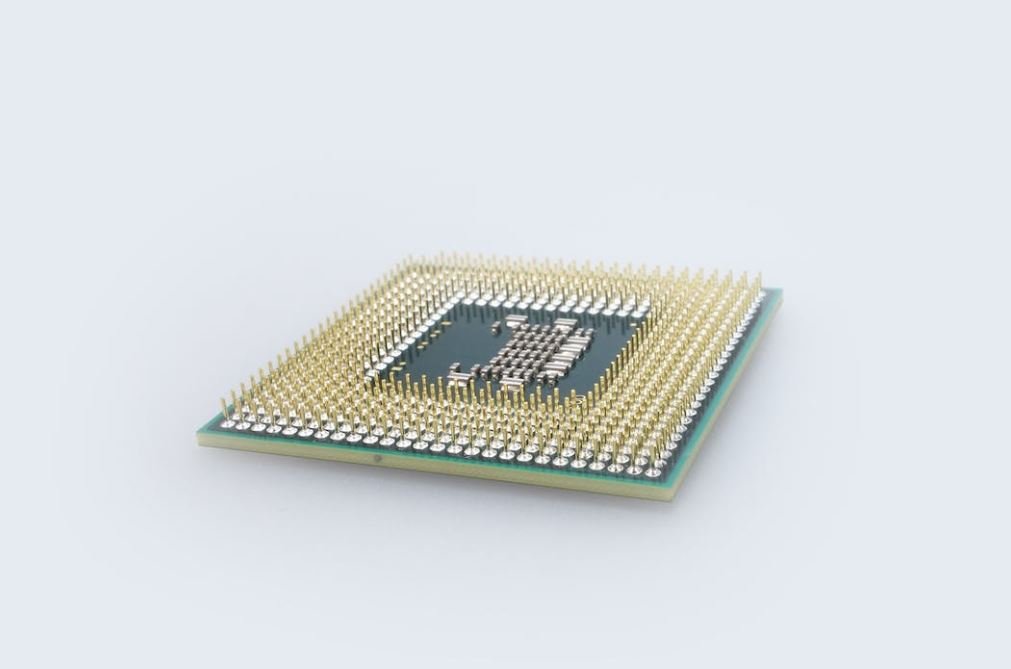How AI Is Used in Manufacturing
The use of artificial intelligence (AI) in manufacturing has revolutionized the industry, enhancing efficiency, productivity, and quality. AI technology has empowered manufacturers to automate processes, predict maintenance needs, optimize inventory, and improve overall operations. From robotic automation to cognitive computing, AI applications have transformed traditional manufacturing methods and paved the way for the future of production.
Key Takeaways
- AI in manufacturing improves efficiency, productivity, and quality.
- Automation, predictive maintenance, and inventory optimization are key applications of AI in manufacturing.
- AI enhances overall operations and paves the way for the future of production.
AI-driven automation has led to significant improvements in manufacturing processes. Robots equipped with AI capabilities can accomplish complex tasks with precision and speed, reducing human errors and increasing production rates. This automation revolutionizes repetitive and labor-intensive activities in areas such as assembly lines, quality control, and material handling, leading to higher output and cost savings. *AI-powered robots can even learn from real-time data, adapt to changes in the production environment, and continuously optimize their performance for maximum efficiency.
Manufacturers can leverage AI to predict maintenance needs and prevent costly downtime. By collecting and analyzing data from sensors and machines, AI algorithms can identify patterns indicative of potential faults or breakdowns. This predictive maintenance approach allows manufacturers to schedule maintenance activities before failures occur, minimizing unplanned downtime and maximizing uptime. *With AI, manufacturers can reduce maintenance costs, extend equipment lifespan, and ensure uninterrupted operations.
AI also plays a crucial role in optimizing inventory management. By analyzing historical data, consumer demand patterns, and supply chain variables, AI algorithms can predict future demand and optimize inventory levels accordingly. This ensures that manufacturers have the right amount of stock at the right time, reducing excess inventory and minimizing holding costs. *AI-powered inventory optimization enables manufacturers to improve customer satisfaction by meeting demand efficiently and avoiding stockouts or overstocks.
AI Applications in Manufacturing
Table 1 provides an overview of various AI applications in the manufacturing industry, showcasing the benefits and impacts of each technology.
| AI Application | Benefits | Impacts |
|---|---|---|
| Robotic Automation | Increased productivity, reduced errors, cost savings | Improved efficiency, job transformation |
| Predictive Maintenance | Downtime prevention, cost savings, extended equipment lifespan | Minimized unplanned downtime, optimized maintenance activities |
| Inventory Optimization | Improved customer satisfaction, reduced holding costs | Efficient demand forecasting, minimized stockouts or overstocks |
Moreover, AI can enhance overall manufacturing operations through cognitive computing. Cognitive systems can understand, analyze, and interpret complex data sets to make informed decisions. This empowers manufacturers to optimize production processes, improve quality control, and enhance supply chain management. With cognitive computing, manufacturers can harness the power of big data and derive actionable insights, leading to continuous improvement and increased competitiveness. *AI-enabled cognitive systems can even detect anomalies in operations, identify potential bottlenecks, and propose optimization strategies proactively.
Implementing AI in manufacturing requires a strategic approach. It involves integrating AI technologies, collecting relevant data, and building robust models that align with specific manufacturing goals. Additionally, AI solutions need to be continuously monitored and fine-tuned to ensure optimal performance. Upskilling the workforce to manage and collaborate effectively with AI technologies is also crucial for successful implementation and adoption.
AI Adoption Challenges
Table 2 outlines the main challenges faced by manufacturers when adopting and implementing AI technologies.
| Challenges | Description |
|---|---|
| Data Quality and Availability | Insufficient and unreliable data, privacy concerns |
| Cost of Implementation | Initial investments, integration with existing systems |
| Change Management | Resistance to change, lack of AI-related skills |
Despite these challenges, AI holds immense potential for the manufacturing industry. It is likely to drive significant advancements in areas such as personalized manufacturing, energy optimization, and supply chain visibility. By leveraging the power of AI, manufacturers can gain a competitive edge, boost profitability, and meet the evolving demands of the market.
The Future of AI in Manufacturing
Table 3 presents a glimpse into the future of AI in manufacturing, showcasing the predicted impact and benefits of AI advancements.
| AI Advancements | Impact | Benefits |
|---|---|---|
| Personalized Manufacturing | Mass customization, improved customer experience | Increased customer satisfaction, enhanced market competitiveness |
| Energy Optimization | Reduced energy consumption, sustainable manufacturing | Cost savings, reduced environmental impact |
| Supply Chain Visibility | Real-time insights, enhanced transparency | Improved planning, reduced risks, increased operational efficiency |
By embracing AI technologies and harnessing their potential, manufacturers can lead the way in the era of smart manufacturing. The use of AI-driven automation, predictive maintenance, and inventory optimization will continue to revolutionize the manufacturing landscape, driving innovation, efficiency, and competitiveness. With AI, the possibilities for the industry are limitless, and the ongoing advancements will shape the future of manufacturing.

Common Misconceptions
Misconception 1: AI Will Replace Human Workers Completely
- AI is usually designed to work alongside humans, rather than replace them entirely.
- AI can assist workers by handling repetitive or dangerous tasks, allowing them to focus on more complex and creative tasks.
- AI can improve productivity and efficiency, but human skills such as problem-solving and critical thinking are still essential in manufacturing.
Misconception 2: AI Is Only Useful for Large-Scale Manufacturing Companies
- AI can be beneficial for manufacturing companies of all sizes, not just large-scale ones.
- Small and medium-sized manufacturers can use AI to automate processes, optimize supply chains, and improve production quality.
- AI technology is becoming more accessible and affordable, making it feasible for businesses with limited resources to adopt AI solutions.
Misconception 3: AI in Manufacturing Will Lead to Job Losses
- While AI may automate certain tasks, it also creates new job opportunities related to AI development, maintenance, and management.
- Workers can upskill or transition to new roles that involve working alongside AI systems.
- AI can enhance job satisfaction by removing mundane tasks and enabling employees to focus on more meaningful and fulfilling work.
Misconception 4: AI in Manufacturing Is Too Expensive and Complex
- AI implementation costs can vary depending on the scale and complexity of the project, but there are affordable options available.
- Cloud-based AI services allow manufacturers to access AI capabilities without heavy upfront investments in infrastructure.
- AI solutions are becoming more user-friendly with intuitive interfaces, enabling easier adoption and reducing complexity.
Misconception 5: AI Will Make Errors Unpredictable and Difficult to Correct
- AI systems can be trained and fine-tuned to minimize errors and improve accuracy over time.
- Manufacturers can implement validation processes and human oversight to ensure AI-generated decisions are reliable.
- Constant monitoring and feedback loops can help identify and correct errors in AI systems, ensuring continuous improvement and reliability.

Introduction
In today’s modern manufacturing industry, Artificial Intelligence (AI) has revolutionized the way processes are managed, optimized, and executed. From predictive maintenance to quality control, AI is widely utilized to enhance efficiency, accuracy, and productivity. This article explores how AI is being employed across various aspects of manufacturing, harnessing its power to improve operations and drive innovation.
AI Applications in Manufacturing
Below are ten examples that demonstrate the diverse applications of AI in the manufacturing sector:
1. Predictive Maintenance Analysis
Applying AI algorithms to analyze sensor data from machinery, manufacturers can predict equipment failures before they occur. This proactive approach enables efficient maintenance scheduling, reducing downtime and maximizing productivity.
2. Quality Inspection Automation
By utilizing AI-powered image recognition systems, manufacturers can automate the inspection of products for defects, ensuring consistent quality levels with greater accuracy and speed.
3. Demand Forecasting
Using historical data and machine learning algorithms, AI can analyze market trends, customer behavior, and other relevant factors to predict future demand. This allows manufacturers to optimize production volume and ensure timely delivery.
4. Supply Chain Optimization
AI algorithms can optimize supply chain processes by analyzing data from various sources, such as customer orders, inventory levels, and delivery times. This enables manufacturers to improve logistics planning, reduce costs, and enhance customer satisfaction.
5. Robotic Process Automation
Integrating AI with robotics, manufacturers can automate repetitive tasks, such as material handling and assembly. This streamlines operations, reduces errors, and increases productivity.
6. Energy Management
Using AI algorithms, manufacturers can optimize energy consumption in factories by analyzing real-time data and identifying areas for improvement. This reduces energy waste, lowers costs, and contributes to sustainable practices.
7. Safety Monitoring
AI-powered systems can monitor workplace environments and identify potential safety hazards, such as equipment malfunctions or employee behaviors. This allows for proactive intervention, minimizing risks and ensuring a safer work environment.
8. Product Design Optimization
AI algorithms can analyze customer feedback, market trends, and performance data to optimize product design. This enables manufacturers to create innovative and tailored solutions that meet customer expectations.
9. Human-Robot Collaboration
Using AI, robots can be trained to collaborate with human workers on complex manufacturing tasks. This combination of human expertise and robotic precision enhances productivity while maintaining quality standards.
10. Intelligent Inventory Management
AI algorithms can analyze customer demand patterns and real-time inventory levels to optimize stock management. This reduces inventory holding costs and increases order fulfillment efficiency.
Conclusion
AI has become a game-changer in the manufacturing industry, transforming operations across various domains. From predictive maintenance and quality control to supply chain optimization and inventory management, AI-powered solutions enhance productivity, accuracy, and efficiency, ultimately leading to improved customer satisfaction and business success. Embracing AI’s potential, manufacturers can unlock new levels of innovation and competitiveness in the dynamic world of manufacturing.
Frequently Asked Questions
How is AI used in manufacturing?
AI is used in manufacturing to optimize production processes, improve product quality, and enhance decision-making. It can be applied for predictive maintenance, robotic process automation, quality control, demand forecasting, supply chain optimization, and more.
What are the benefits of using AI in manufacturing?
Using AI in manufacturing can lead to increased efficiency, reduced costs, improved product quality, enhanced worker safety, and better resource allocation. It can also enable manufacturers to gain actionable insights from large amounts of data, allowing for more informed decision-making.
Which areas of manufacturing can AI be applied to?
AI can be applied to various areas of manufacturing, including production planning, scheduling, inventory management, quality control, predictive maintenance, supply chain management, human-robot collaboration, and product design optimization.
How does AI enable predictive maintenance in manufacturing?
AI enables predictive maintenance in manufacturing by analyzing historical and real-time data from machines and systems. It can identify patterns and anomalies that indicate potential equipment failures or maintenance needs, allowing manufacturers to schedule maintenance before a breakdown occurs, thus minimizing unplanned downtime.
Can AI be used to improve product quality in manufacturing?
Yes, AI can be used to improve product quality in manufacturing. Through machine learning algorithms, AI can analyze data collected during the manufacturing process to identify patterns and detect defects, enabling manufacturers to implement corrective actions and ensure consistent product quality.
How does AI optimize supply chain management in manufacturing?
AI optimizes supply chain management in manufacturing by analyzing data related to demand, inventory levels, transportation, and other factors. It can provide insights to improve demand forecasting, inventory planning, and logistics management, enabling manufacturers to reduce costs, minimize stockouts, and streamline the supply chain.
What role does AI play in robotic process automation (RPA) in manufacturing?
AI plays a crucial role in robotic process automation (RPA) in manufacturing. By integrating AI algorithms into robots and automated systems, manufacturers can achieve more advanced and intelligent automation. AI can enable robots to perceive and adapt to their environment, handle complex tasks, and collaborate with humans effectively.
How can AI help manufacturers make better decisions?
AI can help manufacturers make better decisions by providing insights from data analysis and predictive modeling. It can identify patterns, trends, and correlations in large datasets, enabling manufacturers to optimize production processes, allocate resources effectively, and respond to market changes in a timely manner.
What are the challenges of implementing AI in manufacturing?
The challenges of implementing AI in manufacturing include complexity in data collection and integration, ensuring data quality and reliability, addressing privacy and security concerns, overcoming resistance to change, and acquiring the necessary skills and expertise. It also requires adequate infrastructure and investment.
What is the future of AI in manufacturing?
The future of AI in manufacturing holds great potential. Advancements in AI technologies, such as deep learning and natural language processing, will continue to enhance automation, decision-making, and efficiency in manufacturing. AI will likely play a crucial role in enabling smart factories and driving further innovation in the industry.





